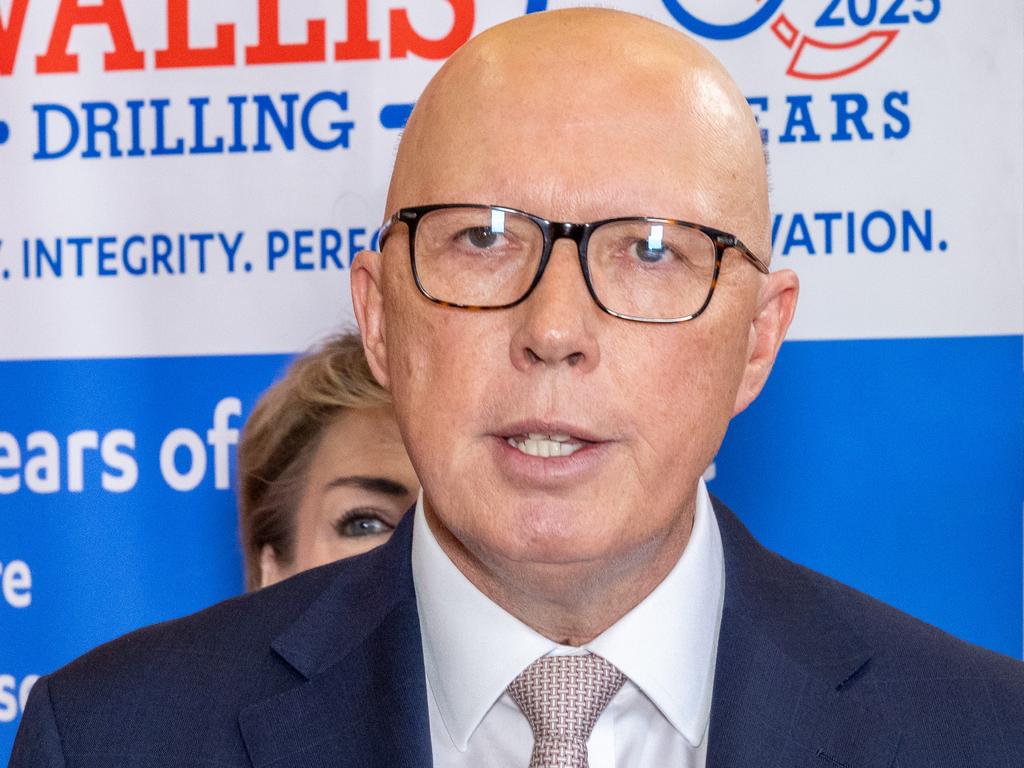Unions win landmark test case against BHP for ‘same job, same pay’
Fair Work rejects the mining giant’s opposition to pay rises in a test of the Labor government’s laws encouraging equal pay for labour-hire workers doing the same job as the directly employed.

Unions have secured a landmark victory against mining giant BHP after the Fair Work Commission approved the nation’s first same job, same pay application, clearing the way for average pay rises of $30,000 for 2200 mineworkers, at a cost of $66m.
Hailing the decision as a “nail in the coffin for BHP’s sham labour hire model”, the Mining and Energy Union said the ruling would significantly lift the pay of labour-hire workers employed at Peak Downs, Saraji and Goonyella Riverside mines in Queensland’s Bowen Basin.
The proceedings were seen as a test case of the government’s industrial relations laws, which allow the FWC to order companies to pay labour-hire workers the same wage as directly employed employees if they are performing the same job.
BHP had tried to defeat the union’s claim against its inhouse labour-hire companies by seeking an exemption for service contractors under Labor’s legislation.
But the FWC’s full bench ruled it was satisfied the evidence did not establish the work of OS Production and OS Maintenance employees involved the provision of an “identifiable and discrete service” to the BHP Mitsubishi Alliance, the BHP joint venture operating the mines.
“As we are satisfied the performance of work by employees of OS Production and OS Maintenance is not or will not be for the provision of a service, rather than the supply of labour … we are required to make regulated labour hire arrangement orders,” it said.
In rejecting BHP’s case, the full bench cited “significant features” of the arrangements, including that BMA determined the mine and maintenance plans; OS employees were required to perform work in line with detailed and highly prescriptive requirements imposed by BMA; and the employees use plant, equipment and systems provided by BMA.
“The work performed by employees of OS Maintenance and OS Production is capable of being described as of a specialist or expert nature in a general sense, but the work is of the same nature and involves the same specialised and expert skills as are exercised by employees of BHP Coal performing the same work in the same mines suggesting that, in substance, what is being provided by OS Maintenance and OS Production is labour,” the FWC said.
Employment and Workplace Relations Minister Amanda Rishworth welcomed the decision, saying the boost in pay for thousands of workers across central Queensland was a direct result of Labor’s workplace law changes.
But opposition industrial relations spokesman Tim Wilson said the decision showed Labor “tricked” parliament to pass laws that hurt business competitiveness, drove up costs, and made it harder to employ Australians and improve standards of living.
ACTU secretary Sally McManus blasted BHP’s challenge to the MEU claim as an “un-Australian act”, declaring the company made a $20.2bn profit last year while clawing money out of workers’ pay packets for many years.
“Time’s up for BHP; it’s time to pay up and do it now. Whether it’s Qantas or BHP, Australian unions are determined to stop big business interests using loopholes to pay workers less by outsourcing labour,” she said.
“This decision will have a flow-on effect throughout the mining industry and well beyond that, as employers realise using labour hire rorts to undercut wages is no longer lawful.”
Minerals Council of Australia chief executive Tania Constable expressed deep concern with the “precedent”, claiming “almost any service contractor could be captured by the legislation unless they can litigate their way out”.
‘This is an incredibly disappointing decision that will directly threaten thousands of specialised contractors who play a vital role in mining operations across the country,” she said.
BHP said it was studying the decision and would comply with the orders made. “Clearly, this will have implications for our business,” a spokesman said
The MEU argued the labour hire workers were receiving between $10,000 and $49,000 a year less than workers performing the same work but were engaged under enterprise agreements.
The union’s Queensland president, Mitch Hughes, said the orders would deliver average annual pay rises of $30,000 for about 2200 workers, while the decision has broader ramifications for the coal industry. “This decision reaffirms that BHP’s approach of using labour hire to undercut bargained wages is no longer lawful and it’s time to pay up,” he said.
MEU general secretary Grahame Kelly urged employers to cease “time-wasting legal interference” that was delaying long-awaited pay rises for thousands of workers across the coal industry.
“This clear decision by the full bench of the Fair Work Commission should send a message not just to BHP but to the whole industry that the time for ripping off labour hire workers is over,” Mr Kelly said.








To join the conversation, please log in. Don't have an account? Register
Join the conversation, you are commenting as Logout